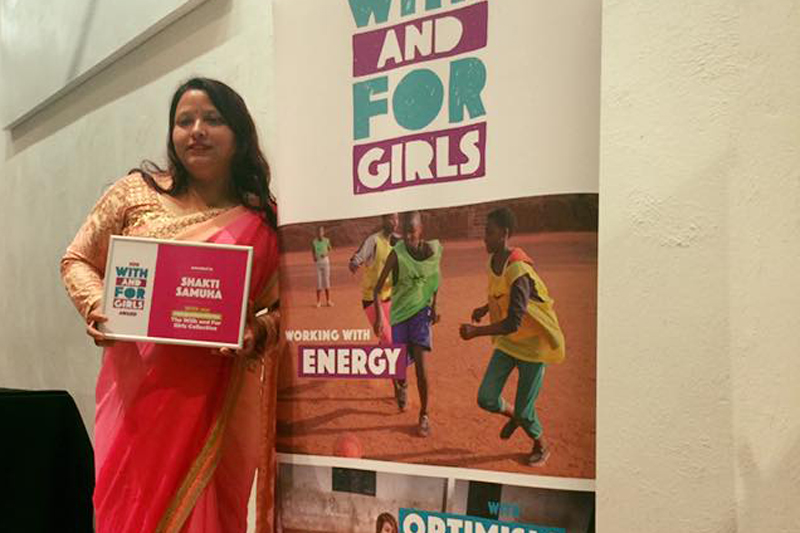Give trafficking victims compensation, Nepal’s judge and former sex slave say
LONDON: Nepali girls and women rescued from sexual slavery should receive compensation from the government when their traffickers are convicted, a survivor said on Wednesday.
Sunita Danuwar, who was sold to a Mumbai brothel when she was 14, said compensation was crucial to help survivors rebuild their lives and reduce the risk of being re-trafficked.
"Survivors need to reintegrate into society. If they have money, then they can reintegrate more easily. If they do not have money then they may be preyed on and re-trafficked," said Danuwar, who now runs an anti-trafficking charity in Nepal.
Her call for compensation was backed by Nepal's leading anti-trafficking judge, Tek Narayan Kunwar, who set a precedent in 2012 when he ordered the government to pay the equivalent of $3,000 to the son of a woman who died of HIV after years working in Indian brothels.
Kunwar said 9,500 Nepali women and girls were trafficked abroad every year. Many end up in India, others are trafficked to Gulf countries, China or within Nepal.
Victims were very poor and often faced social stigma when they returned to Nepal, he said.
"No amount of money will compensate a victim who has been exploited and trafficked but at least it can help them gain independence and make a new start. The government should protect its citizens," said Kunwar.
The district judge in Chitwan is also known for helping to accelerate the time it takes to bring traffickers to justice, introduce tougher prison sentences and improve witness protection.
Depression, Darkness
Speaking on the sidelines of Trust Women, an annual women's right and trafficking conference, trafficking survivor Danuwar said her organisation was pushing the government to introduce compensation during its review of anti-trafficking legislation.
Compensation should be between 500,000 and 1.5 million Nepali rupees ($4,560 to $13,700), she said.
She also called for new legislation to make it easier for Nepal's government to recover assets from traffickers.
Dunawar told the conference, hosted by the Thomson Reuters Foundation, how she was trafficked by two men who sold her to a Mumbai brothel after befriending her family and giving her a sweet laced with drugs.
When she refused to work she was beaten and told she would be killed. She was sold to a second brothel where she was gang-raped before being forced to have sex with around 20 men a day.
"I felt very depressed and very afraid. I thought my life was darkness. I didn't have any choice - I could not run away. I wanted to try to kill myself," she said.
Danuwar, who was repatriated to Nepal after being rescued during a police raid, set up the charity Shakti Samuha with other survivors.
"We decided - 15 girls - to fight together and change our fear into power," she said.
The charity runs shelters for rescued girls and women, organises trafficking prevention programmes and promotes education and training for survivors and others at risk of being trafficked.
The group also supports prosecutions of traffickers, but Danuwar said victims received very little compensation because traffickers were either too poor to pay or had secreted their wealth.
About 229,000 people are trapped in some form of slavery in Nepal, according to the 2016 Global Slavery Index by rights group Walk Free Foundation.






